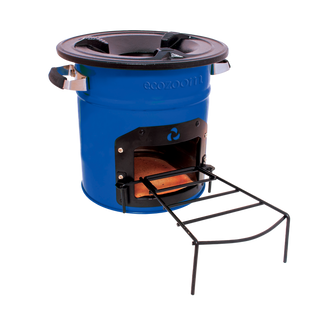This is a special guest post from Aaron Leonard, a retired U.S. Army Officer and the New York leader of Sierra Club Military Outdoors, a program that helps veterans explore and enjoy the lands they swore an oath to protect.
Time spent in nature means something different to everyone but for those of us who spend a lot of time outside we do so because getting away from it all helps us refresh, recenter, and feel genuinely better. You know that rush you get when reaching the summit or feeling of complete and utter relaxation when you lay down for a night sleeping directly underneath the stars? Stress and worry fade away and are replaced with happiness and feelings of contentment. There is nothing else like it.
For our service members and veterans, the outdoors often become a place to train and work each day. Upon returning home from war, it’s not always easy to build outdoor recreation into the day to day but as our friends at the Sierra Club have found, time spent in the outdoors can play an important role in easing the transition home. With a mission to help people explore, enjoy, and protect the planet, the Sierra Club recognizes the importance of connecting military members to the outdoors and created a specific program to make it easy for veterans to experience the healing power of the outdoors.
Military & The Great Outdoors
The Sierra Club’s history of military and veteran engagement dates to its founder, John Muir, who in 1903 guided President Theodore Roosevelt into the Yosemite wilderness, creating Sierra Club’s first “military outing.” The tradition of supporting the military was best illustrated when the Sierra Club’s first full-time executive director, David Brower, responded to the need for an alpine fighting force during WWII. Brower and Club leaders used the mountaineering and skiing skills they developed with the Sierra Club to found and train the 10th Mountain Division - a unit that has distinguished itself from the Dolomites of Italy to the Hindu Kush of Afghanistan. Brower himself fought with the 10th Mountain in WWII, earning a Bronze Star for action in Italy.
Sierra Club established the Military Outdoors program in 2006 to help veterans, service members and their families get outside and experience the benefits of connecting with the physical land they protected. The program supports current volunteers in safely planning and leading outings while effectively training new volunteers to become successful leaders. Since its creation, the Military Outdoors program has facilitated outdoor adventures for more than 70,000 veterans and their families.
Meet A Military Outdoors Member

Amine Tourki grew up in Morocco, moving to Brooklyn at age 15 after his father, a longtime member of the Sierra Club, won an immigration lottery at the U.S. Consulate in Casablanca. Amine’s brief stint with the U.S. Army began in the Summer of 2007 after he left the University of Michigan to accept a position as an Arabic interpreter in Iraq. This would become a life changing experience for Amine, one that he has spent the last decade trying to heal from. In Iraq Amine was assigned to a US Special Forces unit, working with a Green Beret A-Team during the most violent period of Operation Iraqi Freedom. In the four months Amine worked for the Green Berets, he saw the effects of war on the people and the land, experiences that would eventually drive Amine to resign and return to his Brooklyn home.
Ten years after returning from Iraq Amine works as a programmer and Uber driver in New York City. To help firm-up a sense of purpose in his life, Amine joined a local veteran service organization called Mission Continues in Brooklyn, where he volunteers with veterans in his community. While the volunteer projects are deeply rewarding, Amine often felt there was something missing.
As a New Yorker Amine had heard of the parks and trails outside the city. Bear Mountain, Harriman, Breakneck Ridge, all nearby yet seemingly unattainable. He’d dreamed of adventure in the wild, read the histories of New York’s parks, and decided it was time to explore the great outdoors. The problem was, other than local parks, he had no confidence in his ability to safely explore outside the city. As Paulo Coelho so aptly wrote in The Alchemist, “And when you want something, all the universe conspires in helping you to achieve it.” This spring Amine got an email from Mission Continues, an open invitation to join the Sierra Club Military Outdoors on an introductory backpacking trip to Harriman State Park.” Amine saw his opportunity to explore and signed-up.
Finding Frontiers Outside The City

Amine’s never slept outside, never backpacked, never carried everything he needs to survive. He felt fear when he thought of the wildlife and weather he would encounter on this trip. Getting out of the city and into the wilderness put Amine outside his comfort zone, and as the day approached where he would meet up with the group in Hoboken he nearly dropped from the trip. The packing list alone was intimidating: 40+ degree sleeping bag, no cotton, outer layer, inner layer, all foreign to a man who bravely answered a call to serve in a war zone.
Amine’s hesitation is common among the majority of veterans I have worked with in the last five years. Many times my non-veteran colleagues, and sometimes my veteran colleagues who were too far removed from the day-to-day life of a soldier, question why we need to put effort into teaching veterans how to explore the outdoors. Doesn’t everyone in the military go outside? Sure we do, with weapons and ammunition, satellite radios, a company helicopter never more than 30 minutes away, and the presence of the enemy and unknown civilians on an asymmetric battlefield. Out of hundreds of veterans who I have led on multi-day outings only a few have had any practical experience with something as simple and enjoyable as exploring the wilderness for the joy of doing so.
Helping veterans like Amine discover that they can safely explore the wilderness is the best part of this job. The most effective method we use at the Sierra Club’s Military Outdoors is experiential, to simply get these veterans outside and have them learn by doing. Our team of volunteer leaders are veterans themselves, each trained and qualified to recruit those like Amine and lead wilderness outings that teach our veterans how to safely explore the wilderness. Once they overcome their hesitation to get outside, nature can work her magic.
Ultimately, Amine decided to join the group on this outing and explore his new frontier. There were other veterans on the trip along with a few civilians. Some were members of the Sierra Club and only a few had any real experience with multi-day wilderness adventures. There was one commonality: everyone was looking for a way to get out of the city and explore.
Gritty subways and cabs brought the group together for the first time at the Hoboken, New Jersey train station. We quickly escaped everything that is New York City, riding an hour North along the scenic West side of the Hudson river, and eventually arriving at the quiet town of Tuxedo on the border of Harriman State Park. Sierra Club volunteers Leslie Hoellger and Amanda Gordon met the group at the station with food, water, and the gear the group would need for the next three days. Amine joined the other first-time hikers for his backpack fitting and instruction on how to pack his personal and team gear. Setting off from the station, the group walked about ten minutes to the trailhead and disappeared into the woods on their way to the “Dutch Doctor” where they would make camp.
Amine spent the next three days learning how to navigate with a map and compass, cook over a BioLite stove, make clean drinking water, protect wildlife using a bear hang, practicing leave no trace, and how to use a sleeping system to stay warm and dry while in a tent or under the stars. By pushing himself to find a new frontier with Sierra Club Military Outdoors, Amine was able to master a set of new skills while living outside his comfort zone, developing a sense of belonging amongst his new friends and peers.
Anyone who works with veterans in the wilderness will tell you that those who complete even one trip often talk about sleeping better when they get home. They will also often report feeling like they’re part of a team again, and that they belong to something they have missed since leaving the military.
Formal research into the effectiveness of wilderness adventures on the veteran population tell us that veterans who participate are likely to show increases in overall mental health, subjective wellbeing, openness to emotions, motivation for personal growth, and openness to seek psychological help.
(Scheinfeld, 2014; Duvall & Kaplan, 2013).
One important element that the Sierra Club brings to this experience for veterans like Amine is that our outings are typically all volunteer led for veterans by veterans. Our volunteer leaders will build their groups within their communities, offering repeated opportunities to spend time outdoors with other veterans. This type of small group has been a common form of gathering in the veteran community for over 100 years and is the basis for organizations like the American Legion and the Veterans of Foreign War. But in our case we use the wilderness as our meeting place and classroom.
“There is a difference between having drinks with veterans on Wall Street and sleeping next to another veteran in the wilderness.” ~ Amine.
We can learn a lot about ourselves when we expand our frontiers by exploring the world outside. Hiking in with everything you need on your back, cooking alongside new friends, and sleeping under the stars connects you on a different, deeper level with people. “Military Outdoors is a fantastic program,” says Amine. “More than going on a day hike, we get to spend more time together and feel more comfortable with the group. It’s a more wholesome way of bonding with people that have been with you in the trenches. Here you must work within a team, carry food and water, it puts you in touch with nature and a network of people you want to spend time with.” If we lengthen these experiences to more than a single weekend by offering continued exposure to the wilderness we can help veterans discover the power of nature.
At Military Outdoors, we believe that the positive effects of a wilderness adventure will become more permanent if veterans are able to continue spending time outdoors. For Amine, who will attend the Sierra Club’s Outings Leader Training in August 2017 to become qualified as a volunteer leader, this means a regular return to the woods outside New York City. He will have an opportunity to support a group of veterans in his neighborhood as they explore and enjoy the wilderness.
If you are interested in getting involved with Military Outdoors, contact Aaron Leonard at aaron.leonard@sierraclub.org.
Aaron Leonard is a combat veteran who retired in 2014 as a Lieutenant Colonel after over 27 years in the U.S. Army. He has been leading wilderness adventures for service members and veterans since 2012 to help veterans both heal from the wounds of war while becoming leaders in the veteran community. He has five adult daughters and lives with his soul mate and Sierra Club volunteer Leslie Hoellger in Mahopac, New York.
Sources
Scheinfeld, D. (2014). From Battlegrounds to the Backcountry: The Intersection of Masculinity and Outward Bound Programming on Psychosocial Functioning for Male Military Veterans (Doctoral Dissertation). Retrieved from https://repositories.lib.utexas.edu/handle/2152/26928
Duvall J., & Kaplan, R. (2013). Exploring the Benefits of Outdoor Experiences on Veterans. Retrieved from http://camp-liberty.org/wp-content/uploads/2013/06/Michigan-Final-Research-Report.pdf
See our brain inspired sources from the email: CU Boulder, Nature, U of Alabama, and Backpacker.

Read More Stories Here →











